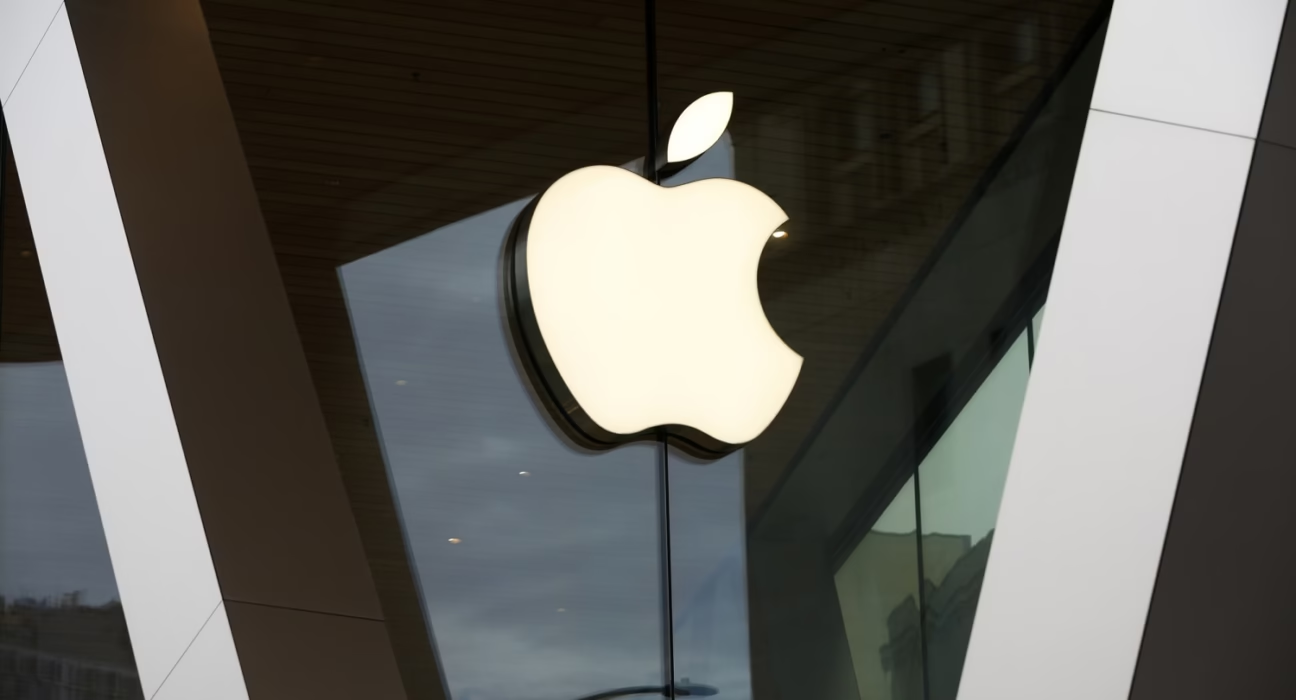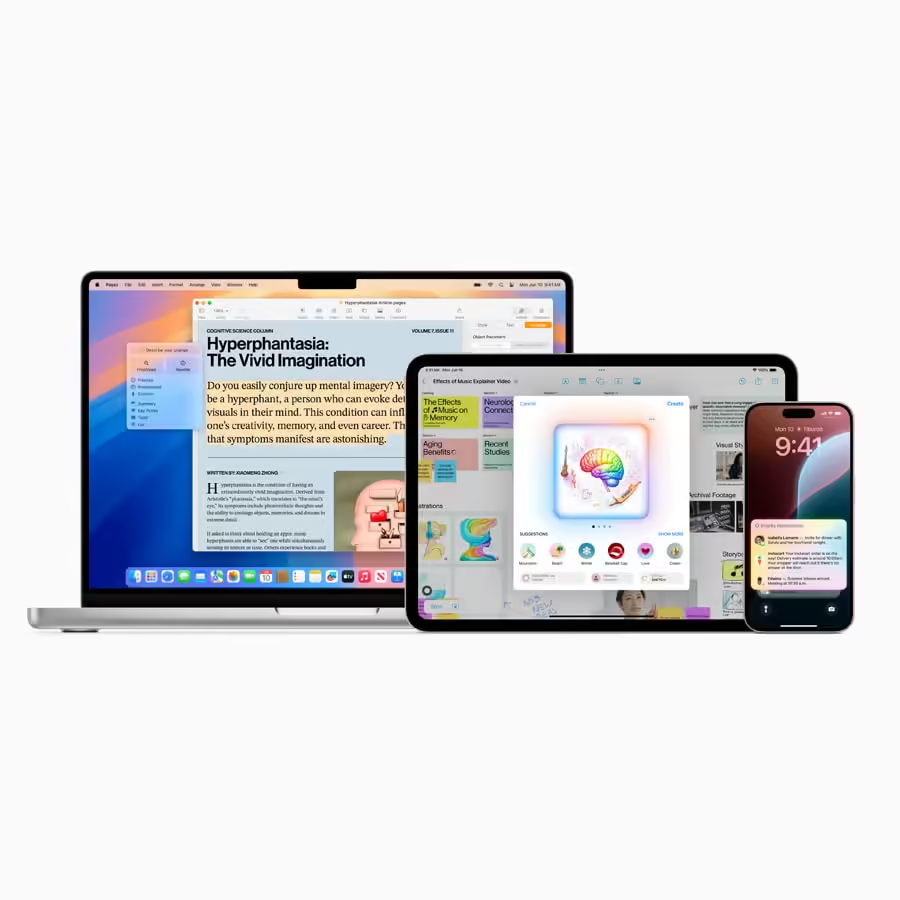Apple Sued Over Siri AI Delays: What the Shareholder Lawsuit Means
Estimated reading time: 9-12 minutes
Key Takeaways
-
- Apple faces a proposed **apple shareholder lawsuit siri ai**.
-
- The suit alleges **apple is being sued over siri ai delays** and misrepresentations about its AI capabilities, particularly concerning the “Apple Intelligence” platform.
-
- Shareholders claim misleading statements regarding Siri’s readiness led to significant financial losses for investors.
-
- The lawsuit highlights the increasing scrutiny on how tech companies communicate AI development progress.
- The case is in its early stages and seeks class-action status, with potential implications for transparency in future AI disclosures.
Table of contents
Introduction
In a significant development for the tech world, Apple is being sued over Siri AI delays. This isn’t just any lawsuit; it’s an **apple shareholder lawsuit siri ai** initiated by disgruntled shareholders who claim they were misled about the readiness of Apple’s cutting-edge artificial intelligence features.

The core issue at the heart of the complaint revolves around alleged misrepresentations or significant delays concerning Apple’s AI capabilities, specifically focused on enhancements for its long-standing voice assistant, Siri. Much of the attention centers on the much-anticipated “Apple Intelligence” platform, which was touted as a major leap forward.
This post aims to provide a clear, informational overview of this **apple shareholder lawsuit siri ai** – delving into the details of the allegations made, identifying the key players involved, and exploring the potential implications this legal challenge could have for Apple and the broader tech industry. Let’s unpack the claims.

Who is Suing and Against Whom?
The plaintiff in this case is Apple shareholder Eric Tucker. He has filed the lawsuit *on behalf of a specific group*: all investors who allegedly suffered financial losses during the period ending June 9, 2025.

Significantly, the plaintiffs are seeking class-action status. This means they intend to represent a much larger group of potentially affected investors who purchased Apple stock during the relevant timeframe and may have been impacted by the alleged misstatements. If certified, the lawsuit would cover a wide swath of Apple shareholders.
The lawsuit was filed in a San Francisco federal court, a common venue for cases involving major tech companies headquartered in the region.
The list of defendants is notable. Named in the complaint are Apple itself, along with several key executives:
- CEO Tim Cook
- Current CFO Kevan Parekh
- Former CFO Luca Maestri

This indicates the shareholders believe the alleged misrepresentations were tied to the leadership of the company.
At its core, the grievance is that shareholders sue apple artificial intelligence over what they claim were false or misleading statements regarding the readiness and advancement of Apple’s AI-powered features for Siri. They argue these statements impacted their investment decisions, creating an artificially positive view of Apple’s AI progress, and ultimately led to financial losses when the reality of the delays became apparent.
Nature of the Lawsuit: Allegations of Securities Fraud
The lawsuit against Apple is characterized as a proposed **apple securities fraud lawsuit ai** class action filed under U.S. federal law. This classification is critical, as it frames the alleged wrongdoing specifically within the context of investor protection and the requirements for public companies.

In this context, a securities fraud claim centers on the idea that a company (or its executives) made false or misleading statements, or omitted crucial information, that were “material” to investors – meaning the information would likely influence an investor’s decision to buy, sell, or hold the company’s stock. The essence of the claim here is that Apple’s public statements (or alleged omissions) about Siri’s AI development and its integration timeline were “materially misleading” to investors.
Shareholders argue that this alleged misrepresentation constitutes a breach of Apple’s obligations under securities law. These laws require publicly traded companies to disclose accurate and timely information that could reasonably impact investment decisions. The lawsuit suggests that by presenting a picture of Siri AI readiness that was not supported by the actual development progress, Apple violated these fundamental disclosure duties, thereby committing securities fraud.
Successfully proving securities fraud typically requires demonstrating:
- A material misrepresentation or omission was made.
- The defendant acted with intent to deceive or with reckless disregard for the truth (scienter).
- The plaintiff relied on the misrepresentation.
- The plaintiff suffered economic loss.
- There is a causal connection between the misrepresentation and the loss (causation).
The **apple securities fraud lawsuit ai** will therefore hinge on whether the plaintiffs can convincingly demonstrate that Apple’s statements about Siri AI were indeed misleading, that the company knew or should have known they were misleading, and that investors lost money as a direct result of those statements.
Specific Allegations Regarding Siri AI Development and Delays
The lawsuit makes very specific claims about the timing and nature of Apple’s statements concerning Siri’s AI evolution. The core of the plaintiffs’ argument lies in the alleged disparity between Apple’s public presentations and the actual state of the technology.
A key point of contention is Apple’s Worldwide Developer Conference (WWDC) keynote in June 2024. Shareholders allege that Apple used this high-profile event to preview a seemingly advanced, personalized version of Siri, powered by the new Apple Intelligence features. This presentation, according to the suit, presented these features as imminent, particularly for devices like the expected iPhone 16 product cycle. The preview for iOS 18’s Apple Intelligence set very high expectations, promising a revolutionary update to Siri.

However, the lawsuit levels a serious charge: that Apple “lacked a functional prototype” of these advanced Siri upgrades at the very time the impressive demonstration was being shown at the WWDC presentation.
Hand-in-hand with this claim is the accompanying allegation that Apple had “no reasonable basis” to believe it could actually deliver what it promised – specifically, that it could implement these sophisticated AI features within the timeframe suggested by the WWDC presentation (i.e., the iPhone 16 product cycle), or perhaps even *ever*, given the alleged state of development.
Adding weight to their claim, the shareholders point to external commentary referenced in the complaint. They note a Daring Fireball post that reportedly described the WWDC Siri demonstration as merely a “concept video,” reinforcing the idea that Apple was showing an aspirational vision rather than a nearly ready product. This detail is used to support the contention that Apple’s presentation was not an accurate reflection of its actual development progress.

The plaintiffs also highlight the subsequent, and arguably sudden, delay of key Siri features. What was implicitly expected for a 2025 release was shifted to a 2026 timeline. This delay, shareholders argue, is concrete evidence that the capabilities were not as far along as initially portrayed. Apple’s recent decisions on Apple Intelligence have seemingly fueled these concerns among investors and the public. Furthermore, observers tracking updates to iOS betas have also noted shifting timelines and the absence of anticipated AI features, lending informal support to the idea of development challenges.

Ultimately, the argument is that Apple was not forthcoming about these development setbacks and the true state of its Siri AI progress until *after* these issues had already significantly impacted market perception and investor confidence. This delay in disclosure, according to the lawsuit, is what constitutes the alleged securities fraud. This forms the basis of the **apple sued over siri ai delays** claim.
Background Context: Apple’s AI Positioning and the Lead-up to the Lawsuit
To understand the significance of this lawsuit, it’s important to place it within the broader context of Apple’s strategic focus and the intense competition in the technology sector. In recent years, artificial intelligence has become *the* battleground for tech innovation. Companies like Google, Microsoft, and others have aggressively promoted their AI capabilities, from sophisticated language models to integrated AI assistants across their product ecosystems.
Amidst this fervent AI race, Apple faced increasing pressure to demonstrate its own advancements, particularly with its long-standing but often criticized voice assistant, Siri. Apple had publicly positioned significant AI enhancements, most notably the “Apple Intelligence” platform, as a crucial differentiator for its upcoming products. Expectations surrounding events like WWDC 2024 were incredibly high, with analysts and consumers alike anticipating groundbreaking AI announcements that would finally bring Siri and Apple’s AI capabilities into direct competition with industry leaders.
The WWDC 2024 event itself undeniably built significant anticipation for Siri’s supposed evolution. The demos and feature reveals generated considerable buzz, suggesting a radical transformation of how users would interact with their Apple devices. However, according to reports and the lawsuit’s allegations, the actual *demonstration* and *delivery timeline* reportedly fell short of both analyst expectations and the picture painted by Apple’s prior general statements about its AI prowess.
The lead-up to the lawsuit was marked by increasing speculation and reports of internal challenges within Apple’s AI development teams. These concerns culminated in March 2025, when Apple officially announced that key Siri improvements, initially anticipated for 2025, would be postponed to 2026. This official delay, following the high expectations set at WWDC 2024 and earlier, significantly fueled investor concerns about the true state of Apple’s AI initiatives and provided the direct context that triggered the filing of the shareholder lawsuit. The **apple intelligence lawsuit impact** began to take shape as investors reacted to the news of the delays.
Claimed Financial Impact on Investors
A central component of any securities fraud lawsuit is demonstrating that the alleged misrepresentations caused concrete financial harm to investors. In this **apple securities fraud lawsuit ai** case, the shareholders lay out specific claims about how Apple’s statements and the subsequent revelation of delays impacted their investments.
The plaintiffs claim that the alleged misleading statements created an inflated perception of Apple’s near-term AI capabilities and product readiness. This perception, they argue, contributed to the company’s stock value, leading investors to make decisions (such as buying or holding shares) based on inaccurate information.
When the reality of the delays and the true state of Siri’s AI development became more apparent, particularly following the official postponement announcement, the market reacted negatively. The lawsuit provides specific figures to illustrate this impact: they claim that after Apple announced the AI and Siri delays, the company’s stock price allegedly dropped nearly 13% in a single week.
Looking at a wider timeframe, the complaint also notes the significant overall decline in Apple’s stock price since its peak in December 2024. According to the lawsuit, the stock price fell nearly 25% from that high point, and they directly link this substantial decline to growing concerns about Apple’s AI progress and the announced delays. The plaintiffs claim this drop in valuation wiped out roughly $900 billion in market capitalization. This figure underscores the magnitude of the losses the shareholders allege were caused, at least in part, by the issues surrounding Apple’s AI disclosures.

The lawsuit seeks unspecified damages on behalf of all affected investors who lost money during the specific period in question. The goal is to recover the losses attributed to the alleged drop in stock value caused by the revelation of the AI delays, which they argue was artificially propped up by earlier misleading statements. The success of the **apple securities fraud lawsuit ai** will depend heavily on the plaintiffs’ ability to convincingly demonstrate this causal link between Apple’s statements (or lack thereof) and the subsequent decline in stock price during the relevant period.
Potential Impact of the Lawsuit
The outcome of this **apple shareholder lawsuit siri ai** could have significant ramifications, not just for Apple, but potentially for the wider technology industry, particularly how companies communicate about cutting-edge, yet-to-be-delivered features like advanced AI.
The most immediate potential impact for Apple is financial. If the lawsuit is successful in achieving class-action certification and ultimately prevails on the merits, Apple could face *substantial financial penalties*. The scale of the claimed market cap loss (hundreds of billions) suggests that awarded damages could be significant, potentially totaling billions of dollars paid out to the class of affected shareholders.
Beyond financial penalties, the case could force Apple to alter its practices regarding future disclosures. A judgment against Apple could necessitate more stringent and transparent reporting on the progress of its AI development and product timelines. This would mean being more cautious and perhaps less bullish in public statements about features that are still in early development, demanding a higher degree of accuracy and less aspirational language.
Furthermore, this case could set a significant precedent. In an era where AI capabilities are a major driver of investor interest and market valuation, a ruling against a company the size of Apple could influence how other technology firms communicate their upcoming AI features and manage investor expectations. It might lead to a more conservative approach to showcasing future technology, especially given the increasing scrutiny on AI claims across the industry by regulators and investors alike. The **apple intelligence lawsuit impact** could resonate far beyond Cupertino.

There’s also the potential for reputational harm. A high-profile securities fraud case, regardless of the outcome, can erode consumer trust and potentially impact sales, particularly for future products that are marketed heavily on their advanced AI functionality. Consumers might become more skeptical of Apple’s promises regarding AI features.
In summary, the lawsuit poses risks ranging from massive financial payouts to fundamental changes in how Apple operates and communicates with the public and investors about its most ambitious technological advancements.
Current Status of the Lawsuit
As of the latest information available, the lawsuit against Apple, filed in June 2025, remains in its relatively early stages within the legal process.
The most critical immediate step for the plaintiffs is to achieve class-action certification from the court. This is a necessary procedural hurdle. The plaintiffs must convince the judge that there is a sufficiently large group of investors who share common legal and factual issues related to the alleged misrepresentations about Siri AI delays. The court will evaluate if the proposed class is appropriate for collective litigation. If certified, the case proceeds representing the entire group; if not, it might continue only as an individual lawsuit, which significantly reduces its potential impact and scope. The **apple sued over siri ai delays** claim as a class action hinges on this certification.
Following potential certification, the case would move into discovery, where both sides exchange evidence. This would involve delving into internal Apple documents, communications, and potentially depositions of employees and executives involved in the Siri and Apple Intelligence development and public communication efforts. This phase can be lengthy and complex.
It is worth noting that, as of the time the sources for this information were published, Apple had yet to issue a public comment specifically addressing the ongoing litigation. Companies often refrain from commenting on active lawsuits, especially in their initial phases, as legal strategies are developed and proceedings unfold. Apple’s response will likely be filed with the court in due course, challenging the plaintiffs’ claims and seeking dismissal of the case.
The legal process for class-action lawsuits can be protracted, often taking years to resolve through motions, discovery, potential settlement negotiations, and possibly trial. Therefore, a final resolution in this **apple sued over siri ai delays** case is unlikely in the near future.
Conclusion
The **apple shareholder lawsuit siri ai** represents a significant legal challenge that underscores the increasing legal risks tech companies face regarding their bold AI promises and sometimes complex development timelines. The case relates closely to Apple’s overall operating system strategy, including its ability to deliver promised features in upcoming updates like iOS 26.
At its core, the dispute revolves around whether Apple’s disclosures about Siri’s advanced AI capabilities and their expected timeline were misleading to investors and, if so, whether this directly caused significant financial harm through a decline in stock value.
The outcome of this case could have wide-ranging implications. It could influence Apple’s future AI development and marketing strategy, reshape its relationship with investors by demanding greater transparency, and potentially set a benchmark for the broader tech sector’s approach to communicating about cutting-edge, and often complex, technological advancements. As the case progresses, it will be closely watched by the financial markets, the tech industry, and anyone interested in the intersection of corporate communication, investor expectations, and the rapid evolution of artificial intelligence. The **apple sued over siri ai delays** narrative is far from over.
Frequently Asked Questions
Q: What is the main reason Apple is being sued?
A: Apple is being sued by shareholders who allege the company made false or misleading statements about the readiness and timeline of its advanced AI features for Siri, causing them financial losses when the delays became public.
Q: Who filed the lawsuit against Apple?
A: The lawsuit was filed by Apple shareholder Eric Tucker on behalf of investors who allegedly suffered losses in the year ending June 9, 2025. They are seeking class-action status.
Q: What are the specific allegations about Siri AI?
A: Shareholders claim Apple presented advanced Siri features (part of “Apple Intelligence”) at WWDC 2024 as imminent for the iPhone 16 cycle, while allegedly lacking a functional prototype and having no reasonable basis to believe it could deliver on time. They point to the subsequent delay to 2026 as evidence.
Q: What kind of lawsuit is this?
A: It is a proposed federal securities fraud class-action lawsuit, alleging that Apple’s disclosures violated securities laws designed to protect investors from misleading information.
Q: How did the alleged delays impact investors?
A: Plaintiffs claim the revelation of the delays caused Apple’s stock price to drop significantly, resulting in hundreds of billions of dollars in market capitalization loss, and seek to recover their share of these losses.
Q: What is the current status of the lawsuit?
A: The lawsuit was filed in June 2025 and is currently in its early stages, awaiting class-action certification by the court. Apple has not yet made a public comment on the litigation.
Q: What are the potential implications if the lawsuit is successful?
A: If successful, Apple could face significant financial penalties, be required to increase transparency in its AI disclosures, and potentially set a precedent for how other tech companies communicate about future AI features. It could also impact Apple’s reputation.






